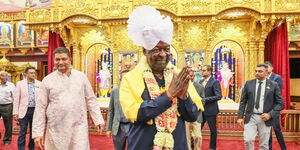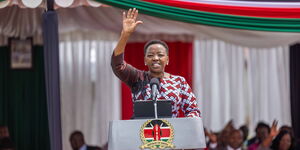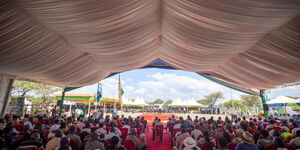Senate Speaker Ken Lusaka has made a historic ruling regarding how Senators are allowed to dress in the house.
During a session on Tuesday, November 10, Speaker Lusaka stated that legislators would now be allowed to access Parliament's debate chambers and attend house business in traditional African attire.
The historic ruling was triggered by Narok Senator Ledama ole Kina who caused a spectacle by dressing in traditional Maasai regalia.
Wajir Senator Abdullahi Ibrahim raised a point of order, noting that Ledama's dressing contravened the Senate's standing orders and traditions which have run since the colonial era.
Speaker Lusaka later ruled that the constitution recognises culture as an important aspect of the nation. He added that the Maasai attire was globally recognised as thus acceptable for Ledama to wear.
"It would be absurd, unfortunate, and unconstitutional for me to dismiss Ole Kina for wearing a dress that has been globally recognised not just as a symbol of the Maasai but also something that globally identified our heritage as a country," he ruled.
The senator thanked Lusaka by saying "My culture my pride. Thank you Mr. Speaker for respecting the constitution and our culture!"
The landmark ruling will only apply to the Senate until the National Assembly reconsiders the age-old dress code.
The dress code in Parliament has remained unchanged since Kenya attained independence in 1963. Male MPs have been required to wear a formal suit, a shirt and a tie - a tradition borrowed from Britain.
A number of leaders have been kicked out of Parliament over their dress code including Nairobi Governor Mike Sonko, ODM Leader Raila Odinga and his father Jaramogi Oginga Odinga.
The late Jaramogi was kicked out for wearing a pair of shorts while the ODM leader was ejected in 2003 for dressing in Nigerian men's attire popularly known as abgaba.
Sonko, then the MP for Makadara, was ordered out of the house after entering the chambers wearing ear studs and sunglasses.
He tried to explain that he was a youth and that his dressing represented the youth of the country but his argument fell on deaf ears.












